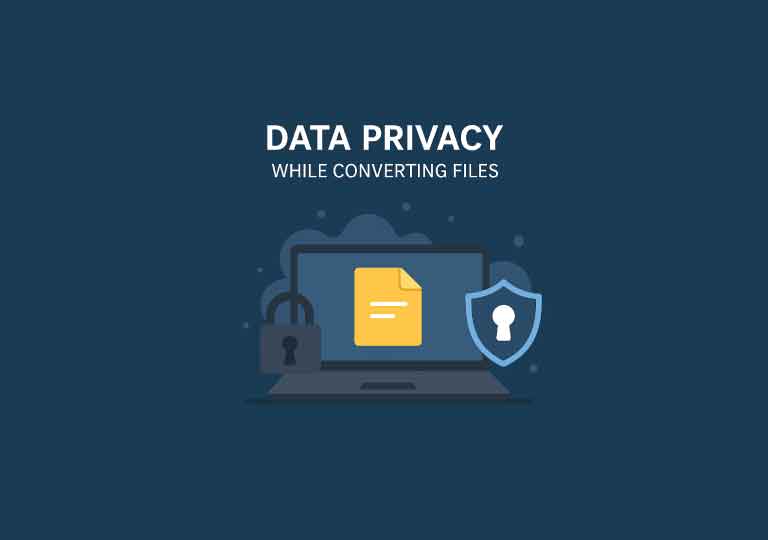Why File Conversion Privacy Matters
Many times you will need to use an online site or third‑party tool to convert files. These files might include:
- Personal photos and videos
- Financial records and invoices
- Medical documents
- Business contracts or trade secrets
This information can be unprotected and accessed, copied, or even sold if not handled correctly.
Potential Privacy Risks
Below are common privacy issues likely to arise when performing file conversion.
Server Storage
Uploading your file to a server is what many online converters do. Your data might be at risk if these servers are inadequately secured or managed:
- Stored indefinitely
- Accessed by unauthorized parties
- Shared with third‑party advertisers
Lack of Encryption
Your files can be intercepted while in transit — it can be trivially easy for attackers to access or modify data if connections aren’t encrypted.
No Clear Deletion Policy
Some sites will convert your file but don’t say when — or if — it’s deleted. This can lead to files being left on servers, heightening the threat of a breach.
Malware Injection
Unreliable converters might tamper with your file, adding malware or adware to the downloaded output.
How to Protect Your Data
Best practices for converting files — follow these to maintain privacy and protection.
Use Reputable Services
Choose file conversion tools that:
- Use HTTPS / TLS encryption
- Clearly state their privacy policy
- Auto-delete converted files (e.g., within seconds or hours)
- Explicitly state they do not store or analyze your files for advertising or training purposes
Example: FileConvertz.com for auto-deleting files after conversion. (Be sure to verify a service’s claims; this is an example, not an endorsement.)
Avoid Uploading Sensitive Files Online
If your documents are sensitive, personal, or confidential, try offline tools instead:
- HandBrake — video conversion
- 7‑Zip — archive/compression
- Adobe Acrobat — PDF tools
- Audacity — audio editing
Offline tools run locally, which means no data leaves your computer.
Read the Privacy Policy
Yes, they’re long — but skim for:
- Data retention terms
- Whether files are shared with outside entities
- How long files are kept on the server
- If files are encrypted in transit and at rest
Use VPNs and Encrypted Networks
Always use a VPN when converting files online, especially on public Wi‑Fi. This adds another layer of privacy by encrypting all traffic to and from your device.
Delete Files Post‑Conversion
Clean up lingering temporary or leftover files after conversion:
- Downloads folder
- Cloud backups
- Browser caches and temporary files
SECURE SUBSTITUTES — Offline vs Online Tools
| Purpose | Use Online Tool | Use Offline Tool |
|---|---|---|
| Quick, casual conversion (images, docs) | ✅ | — |
| Large media files (video, audio) | — | ✅ |
| Sensitive or confidential files | — | ✅ |
| Batch or frequent conversions | ✅ (if reliable) | ✅ |
The Bottom Line
Most people overlook data privacy when it comes to file conversion — but you shouldn’t. Whether you’re a casual user or a business professional, safeguarding your files means knowing where they’re going, how they’re being used, and who can access them. At all times try to use tools that are transparent, secure, and respectful of your data. It’s always better to be safe than sorry with your digital footprint.
